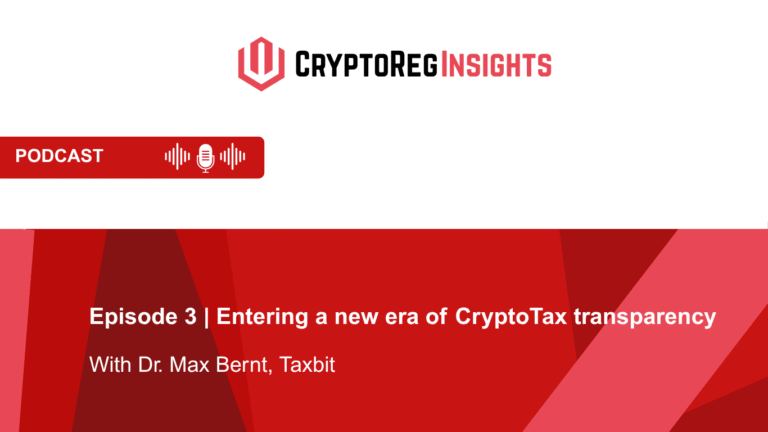Summary
The UK’s cryptoasset regulatory framework is evolving towards a comprehensive regime under FSMA 2023, prioritizing fiat-backed stablecoins for their payment potential. The FCA is leading conduct and consumer protection efforts, while the BoE focus on financial system stability. Key milestones include AML/CTF registration (2020), FSMA 2023 (2023), “Travel Rules” (2023), financial promotions rules (2023), and draft Financial Services and Markets Act 2000 (Regulated Activities and Miscellaneous Provisions) (Cryptoassets) Order 2025 (2025). In addition to currently consulted papers, the FCA plans to release further consultations before finalising the framework in 2026.
From definition to “Travel Rule”
Six years ago, when I first examined stablecoin regulations for Deutsche Bank’s Flow magazine, regulators worldwide had just begun developing their perspectives on the risks of crypto assets and potential regulations. The United Kingdom was no exception. Since then, the regulation of cryptoassets in the United Kingdom has advanced significantly. Stablecoins, as a subset of cryptoassets, have received particular attention due to their potential use in payments and systemic implications.
The UK’s approach has focused on balancing innovation with consumer protection, financial stability, and anti-money laundering compliance. Current regulatory regime of crypto assets and stablecoins is primarily built upon the Financial Services and Markets Act 2000 (FSMA), as amended by the Financial Services and Markets Act 2023 (FSMA 2023). And yet, crypto is largely unregulated in the UK.
David Geale, executive director for payments and digital finance at the FCA, said: ‘At the FCA, we have long supported innovation that benefits consumers and markets. At present, crypto is largely unregulated in the UK. We want to strike a balance in support of a sector that enables innovation and is underpinned by market integrity and trust.’
In 2019, there was no definition of crypto assets or any special regulatory frameworks when the FCA issued its Final Guidance on Cryptoassets, clarifying the regulatory perimeter for cryptoassets. Without introducing new regulatory requirements, this guidance allocated cryptoassets in two categories: regulated (e.g., security tokens, e-money tokens) and unregulated (all the rest). However, it wasn’t until 2023 that an official definition of cryptoassets was first introduced at legislative level, and the foundation for secondary legislation to bring cryptoassets and stablecoins into the financial services regulatory perimeter was set in FSMA 2023. The rules that followed in 2023 related to AML/CTF (incl. “Travel Rule”) and consumer protection (FCA Guidance on Cryptoasset Financial Promotions), and completed the round of regulatory changes before the next big change.
Major change: specified investments & new regulated activities
May 2025 marked a significant milestone in regulating cryptoassets and stablecoins. HM Treasury published a draft of forthcoming statutory provisions to create new regulated activities for cryptoassets (“Draft SI”) under the Financial Services and Markets Act 2000 (Regulated Activities) Order 2001 (“the RAO”). By defining “qualifying cryptoassets” and “qualifying stablecoins” as specified investment under FSMA, it brought these assets within the regulatory perimeter for financial services and expanded the scope of regulated activities. Such activities include: issuance of qualifying sablecoin, safeguarding (custody) of qualifying cryptoassets, operating a qualifying cryptoasset trading platform, dealing in qualifying cryptoassets as principal and as agent, arranging deals in qualifying cryptoassets and qualifying cryptoasset staking. Once these changes are enacted, persons carrying on those activities need to be authorised for that activity by the FCA.
In addition, Draft SI suggested two other changes to clarify the regulatory status of stablecoins:
- ensuring that “Qualifying stablecoin” backing assets are not considered either an alternative investment fund or collective investment scheme, and
- that there is a clear distinction between qualifying stablecoin and tokenised deposits, and electronic money, through an amendment to the Electronic Money Regulations 2011.
Draft SI follows a Treasury’s detailed proposals for the creation of a financial services regulatory regime for cryptoassets, including stablecoins (October, 2023) and largely is in line with it. The only exception to that is that the Government decided not to bring UK issued stablecoins into regulated payments the PSRs 2017, at this time. As noted in accompanying Policy Note, “this does not mean that stablecoins cannot be used for payments in the UK, but simply that they will remain unregulated for payments for the time being”. As use-cases develop in wholesale and retail payments, the Government will respond to this as part of wider payments reforms.
Issuance of Stablecoins & custody of cryptoassets
At the same time as Draft SI was published, FCA released two consultation papers on crypto assets (May, 2025):
- FCA CP on Stablecoin issuance and cryptoassets custody
- FCA CP a Prudential regime for cryptoasset firms
Stablecoins, particularly fiat-backed stablecoins, were among a priority areas in the UK’s regulatory agenda due to their potential for widespread use in payments and systemic risks. Indeed, the stablecoins are used to settle transactions with cryptoassets, act as an on-ramp to or off-ramp from the cryptoassets ecosystem and acting as a means of cross border payments.
The FCA is prioritizing fiat-backed stablecoins, defined as cryptoassets that maintain stable value by referencing one or more fiat currencies and holding backing asset. In the Consultation it is suggested that their issuance and custody will require FCA authorization under FSMA. Issuers must hold backing assets in a statutory trust, ensure redemption at par, and meet prudential and consumer protection requirements. The FCA’s proposals include requirements to maintain value stability, segregate backing assets, and provide transparencyon how the backing assets are being managed.
What’s next
Further developments of future regulatory framework will be introduced in phases, with the FCA, BoE, PRA, and PSR playing distinct but coordinated roles.
FCA: Oversees conduct regulation, AML/CTF compliance, financial promotions, and consumer protection for cryptoassets, including stablecoin issuance and custody.
- BoE: Regulates systemic payment systems using stablecoins, focusing on financial stability.
- PRA: Supervises prudential requirements for deposit-taking institutions involved with cryptoassets, including tokenized deposits.
- PSR: On 11 March 2025 the Government announced its intentions to consolidate the PSR and its functions mainly within the FCA. Before all the transition take effect- it can regulate systemic digital settlement asset (incl. stablcoins) payment systems and service providers (e.g. stablecoin issuer and custodian) to ensure efficiency and competition – subject to HMT designation.
Systemic stablecoin payment systems
Systemic stablecoin payment systems (those widely used for payments) is another area of BoE supervision in future.
In its Discussion Paper on “Regulatory Regime for Systemic Payment Systems Using Stablecoins and Related Service Providers” (November 2023), the BoE outlined its vision for the oversight for systemic stablecoin payment systems, focusing on financial stability and “singleness of money” (ensuring stablecoins maintain parity with fiat currency).
Sarah Breeden, deputy governor for financial stability at the Bank of England, said: ‘We welcome the proposals the FCA have published as part of building the UK’s stablecoin regime. For those stablecoins that expect to operate at systemic scale, the Bank of England will publish a complementary consultation paper later this year, including responding to industry feedback around allowing some return on backing assets. We continue to work closely with the FCA to ensure the integrity of the UK’s stablecoin regime, including how firms transition within the regime.’
Ahead of finalising cryptoasset regulatory framework in 2026, FCA will consult on the following matters (see FCA crypto roadmap):
- Q3 2025: Conduct and firm standards for all Regulated Activities Order (RAO) activities Systems and controls including Operational Resilience and Financial Crime Consumer Duty Complaints Conduct (COBS) Governance including Senior Managers and Certification regime
- Q3 2025: Admissions and Disclosures
- Q3 2025: Market Abuse
- Q4 2025 – Q1 2026: Trading platforms, intermediation, lending and staking
- Q4 2025 – Q1 2026: Remaining material for prudential sourcebook
Author: Polina Evstifeeva



